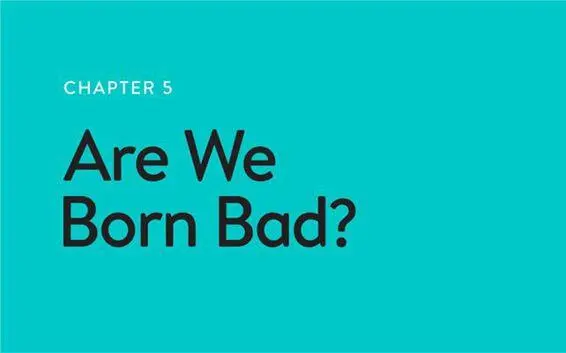Bruce Hood - The Domesticated Brain - A Pelican Introduction (Pelican Books)
Здесь есть возможность читать онлайн «Bruce Hood - The Domesticated Brain - A Pelican Introduction (Pelican Books)» весь текст электронной книги совершенно бесплатно (целиком полную версию без сокращений). В некоторых случаях можно слушать аудио, скачать через торрент в формате fb2 и присутствует краткое содержание. Год выпуска: 2014, ISBN: 2014, Издательство: Penguin Books Ltd, Жанр: Старинная литература, на английском языке. Описание произведения, (предисловие) а так же отзывы посетителей доступны на портале библиотеки ЛибКат.
- Название:The Domesticated Brain: A Pelican Introduction (Pelican Books)
- Автор:
- Издательство:Penguin Books Ltd
- Жанр:
- Год:2014
- ISBN:9780141974873
- Рейтинг книги:4 / 5. Голосов: 1
-
Избранное:Добавить в избранное
- Отзывы:
-
Ваша оценка:
- 80
- 1
- 2
- 3
- 4
- 5
The Domesticated Brain: A Pelican Introduction (Pelican Books): краткое содержание, описание и аннотация
Предлагаем к чтению аннотацию, описание, краткое содержание или предисловие (зависит от того, что написал сам автор книги «The Domesticated Brain: A Pelican Introduction (Pelican Books)»). Если вы не нашли необходимую информацию о книге — напишите в комментариях, мы постараемся отыскать её.
The Domesticated Brain: A Pelican Introduction (Pelican Books) — читать онлайн бесплатно полную книгу (весь текст) целиком
Ниже представлен текст книги, разбитый по страницам. Система сохранения места последней прочитанной страницы, позволяет с удобством читать онлайн бесплатно книгу «The Domesticated Brain: A Pelican Introduction (Pelican Books)», без необходимости каждый раз заново искать на чём Вы остановились. Поставьте закладку, и сможете в любой момент перейти на страницу, на которой закончили чтение.
Интервал:
Закладка:
If impulse control emerges as the interaction between biology and environment, it would seem that it is wise to provide children with guidelines about what is socially acceptable but not try to enforce them by external pressure. Nor should they be left alone or indulged. One size does not fit all and strategies for domesticating children will depend on the individual child, the parents and the culture. This variation in impulsivity reflects both individual temperaments but also the social environments that foster strategies for shaping and modifying thoughts and behaviours. If our social interactions are to be successful, we need to maintain control in company but that comes at a cost. When we resist the temptation to act inappropriately or not say what is on our mind because we might offend or upset others, then there can be consequences. Rebound effects and ego depletion show that there can be a price to pay for maintaining a veneer of respectability and when disease, damage or drugs compromise our self-control, we become victims of unconscious thoughts and behaviours as the story of the coherent individual that we try to maintain comes apart. When someone loses control, they often end up in trouble since they break moral codes and laws that society has put into place to guide our domestication. But what if there were no rules? Would we still learn to live together or would all hell break loose?

‘Kill the beast! Cut his throat! Spill his blood! Do him in!’
This chilling chant comes from a dramatic scene in William Golding’s Lord of the Flies , when English schoolboys, marooned on a desert island, work themselves into a blood-lust frenzy before they descend on the innocent boy Simon, beating him to death with sticks. 1It is a tale about the inherent evil of mankind because, far away from the confines of civilization, Golding thought children would descend into savagery. He wrote the book based on what he thought was the true nature of humans after witnessing the atrocities of World War II. Prior to the war, Golding believed that man was inherently good but afterwards would later lament,
I must say that anyone who moved through those years without understanding that man produces evil as a bee produces honey, must have been blind or wrong in the head. 2
The true nature of man is a question that has preoccupied thinkers for centuries. Thomas Hobbes, the seventeenth-century English philosopher, believed that children were born selfish and needed to be taught how to become useful members of society. In the West, this view of the lawless child prevailed up until the last 100 years and it was thought that the best way to parent was through a regime of strict discipline, since only harsh schooling would instruct children how to behave in society. Children, according to this view, lacked a moral compass and, left to their own devices, would run amok and descend into an animalistic battle for survival as captured in Golding’s nightmarish vision.
In contrast, the eighteenth-century French philosopher Jean-Jacques Rousseau thought the inherent disposition of man was good. In his natural state, man was a ‘noble savage’ and it was society that corrupted the individual – a moral perspective that would later underpin the justification for the French Revolution. If everyone had equal opportunities, societies would not become corrupted and despotic.
During the twentieth century there was a shift towards Rousseau’s vision, with less cruelty towards children, but even today many adults continue to believe that children require punishment in order to learn right from wrong. This view is especially common among those who tend to be more right-wing in their political outlooks – a world view fuelled by media stories of moral decline as our streets descend into a jungle, occupied by gangs of youths who have no sense of morality. 3However, the crime statistics suggest that life is improving as we move to a more humane society, despite the adoption of less punitive attitudes towards children. 4Even though we use less corporal punishment, and it is now outlawed in many countries, there is no evidence that children are becoming more lawless.
Hobbes’s and Rousseau’s polar positions are reminiscent of the nature and nurture division discussed earlier in the book when we talked about the biology of personality – are people born evil or do they become that way by experience? In this chapter, we will reach the same general conclusion in our discussion of morality – biology and experience always work together but in ways that are often surprising and counter-intuitive. Violence and aggression are not covered, even though these are indeed some of the most important aspects of our domestication. The reason is that experimental research on human aggression is sparse and, for obvious ethical concerns, there is even less work on children. Rather, here the focus is on moral conventions that vary culturally such as sharing, helping, honesty and generally how to behave in good company. To what extent are these learned and/or motivated by biological drives to become accepted by others?
The moral instinct
Every member of a society needs to know right from wrong. In general, our moral principles are based on the Golden Rule: ‘Do unto others as you would have them do unto you.’ Morals govern how we behave and all members are expected to abide by the rules if they wish to remain within the group and enjoy the same rights and opportunities as others. Some of these rules are enshrined in legal systems whereby transgressions are dealt with by punishment, whereas others are codes of conduct about how to behave in polite society. Being cruel to someone may not be illegal if it does not breach the law, but it is none the less morally wrong. Whether through law or social norms, adhering to the morals of the societies we live in is critical to becoming domesticated. But where do these rules come from and how do children learn them?
There are some universal morals, such as not killing members of your own family or harming the innocent. However, there remains considerable cultural variation about what is right or wrong for other practices that cover everything seemingly trivial, such as what to wear or eat, to what consenting adults can do behind closed doors. This variation is most obvious when there is a cultural clash between groups who differ in their moral judgements, most often reflecting religious views. For example, there are varying Islamic practices for maintaining the modesty of women that range from covering just the hair with a scarf to the full body cover of the burqa. This is part of the religious moral code of Islam, though even so, there is considerable variation about how it should be interpreted and implemented. In 2011 France outlawed the burqa in public on the grounds that it was an infringement of civil liberties, though ironically many Muslim women regarded the ban as a form of religious persecution. 5
Other aspects of modern Western societies, such as gay marriage, legalized prostitution, pornography and drug use, are considered morally depraved by various religious and conservative groups. Not only do moral values differ but they also change over time. Up until 1967, when the law was finally changed, homosexuality was illegal in England. Since then, there have been progressive amendments, despite intense objection from many groups, to remove discrimination by providing equal rights.
These examples of cultural variation over time and between different groups show that morals are not cast in stone but rather reflect the histories and nuances of various groups, who maintain their identity by enforcing moral values. This might suggest that all morality is learned in the Hobbesian tradition. However, in the same way that infants are wired to acquire a language depending on where they are raised, they also seem pre-configured to adopt the morality espoused by the social groups they enter. 6
Читать дальшеИнтервал:
Закладка:
Похожие книги на «The Domesticated Brain: A Pelican Introduction (Pelican Books)»
Представляем Вашему вниманию похожие книги на «The Domesticated Brain: A Pelican Introduction (Pelican Books)» списком для выбора. Мы отобрали схожую по названию и смыслу литературу в надежде предоставить читателям больше вариантов отыскать новые, интересные, ещё непрочитанные произведения.
Обсуждение, отзывы о книге «The Domesticated Brain: A Pelican Introduction (Pelican Books)» и просто собственные мнения читателей. Оставьте ваши комментарии, напишите, что Вы думаете о произведении, его смысле или главных героях. Укажите что конкретно понравилось, а что нет, и почему Вы так считаете.











